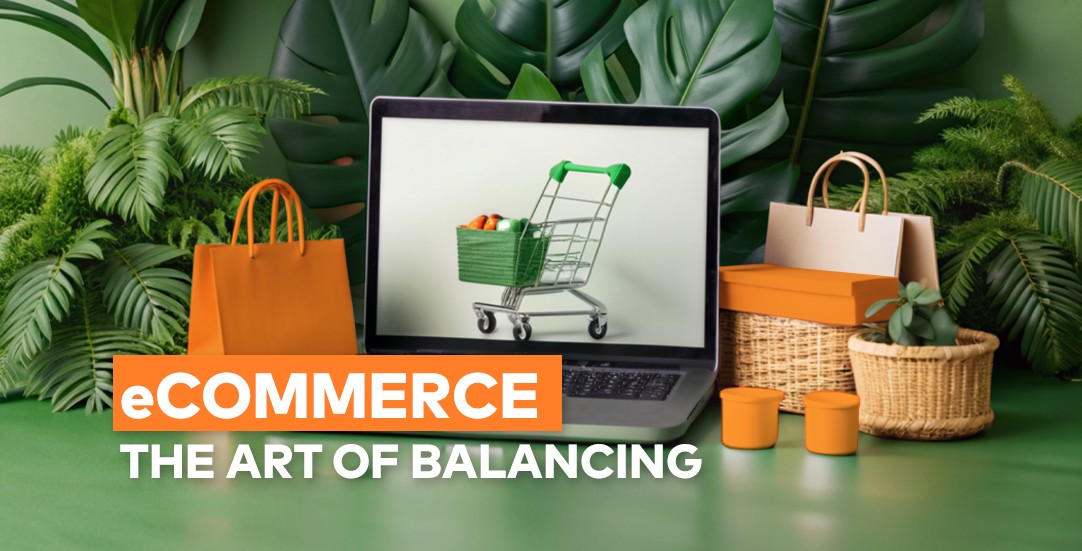The art of balancing – Leveraging marketplaces without falling into their traps

In today’s digital world, the opportunities for eCommerce are wider than ever. The low barriers to entry mean that changes are happening not just year by year but month by month. eCommerce owners face the challenge of balancing profitability, competitive offerings, promotional activities, customer loyalty, and preferences. Partnering with marketplaces, developing your own eCommerce platform, using ready-made store solutions, and streamlining the customer journey from “eye” to “cart” are key challenges for businesses of all sizes, from large enterprises to smaller startups.
It’s no surprise that in this ever-shifting space, marketplaces have become a natural starting point for many businesses. In this article, we explore proven strategies for eCommerce that will help you benefit from marketplaces while avoiding dependence on them and, more importantly, increasing your profits. Tips listed below are based on our experience from many projects as we are offering eCommerce optimization services to small and big online businesses around the globe.
Marketplace is the first step in scaling your eCommerce
Marketplaces like Amazon, Allegro, and eBay offer extensive reach and access to large customer groups, making them an attractive sales channel for small businesses. However, there are several “hooks” to be aware of. Working with a marketplace often means becoming dependent on its owner. This dependency limits your negotiating power regarding changes in rules, commissions, and algorithms, which can significantly impact your sales performance.
Advantages of selling on Marketplaces
- Broader Reach: Online marketplaces provide access to millions of potential customers, increasing your product visibility.
- Trust and Credibility: Established marketplaces have earned consumer trust, which can benefit new sellers.
- Streamlined Logistics: Many marketplaces offer integrated logistics solutions, simplifying order fulfillment.
Marketplaces risks
- Fee Structure: Marketplaces charge various fees that can reduce profit margins.
- Policy Changes: Sellers are subject to changes in marketplace policies or algorithms, which can affect visibility and sales.
- Brand Dilution: Heavy reliance on marketplaces can lead to brand dilution, as customers may associate products more with the marketplace than with the brand itself.
Scaling your eCommerce with marketplaces in the background
In the initial phase, building brand awareness and exploring market potential often happens through marketplaces, with all their pros and cons. However, brands should not stop at marketplaces when moving into the growth phase. As your brand grows, having your own eCommerce platform becomes increasingly important. It allows for greater control over your brand, product offerings, customer relationships, and experiences.
When creating your first eCommerce platform, remember that it should be designed to support long-term success and scaling. Over time, expanding platform features, integrating with ERP systems, and optimizing the purchasing process become crucial. Ensure platform stability, brand monitoring, and quality service at every stage. As your brand evolves, expand your distribution channels, develop partnerships, and implement loyalty programs and promotions for both existing and new customers.
Spoiler alert:
In the next sections of this article, you’ll discover effective strategies and quick wins that can help you scale your eCommerce and boost your revenue more quickly.
Mature phase of eCommerce – Integrating omnichannel strategies
In the maturity phase, brands often implement an omnichannel strategy, integrating online sales with offline channels such as physical stores, pop-ups, or showrooms. Advanced technologies and personalization become crucial; using analytical tools and artificial intelligence can improve customer targeting and distribution efficiency. As your brand develops, focusing on direct-to-consumer sales without intermediaries allows for better brand control and higher margins. Well-functioning distribution channels enable further exploration and innovation.
Effective strategies for diversifying eCommerce channels
We’ve already seen that smart collaboration with marketplaces can be profitable. Here’s a list of strategic quick wins that will ensure your independence and increase your business’s profitability:
Diversify your offerings
- Exclusive products on your platform: Sell unique items exclusively on your website to attract direct customers. On marketplaces, list more popular products.
- Personalized offers: Provide personalized or limited-edition versions of products on your platform to increase order value.
- Dynamic pricing: Set competitive prices on marketplaces while offering better deals on your site to attract direct purchases.
- Product bundles: Sell bundles or packages of products on your platform that are not available on marketplaces to boost average order value.
- Loyalty programs: Implement loyalty programs only on your site to enhance customer engagement and encourage repeat purchases.
- Ensure quality: Focus on engaging product descriptions that highlight benefits for customers, emphasizing what they will feel and gain after purchase. High-quality images with attractive backgrounds and consistency are also crucial.
Strategic use of eCommerce Marketing
- Cross-Promotion: Use marketplaces to build brand recognition and direct customers to your website by including flyers, discount offers, or loyalty cards in marketplace orders.
- Own promotional campaigns: Create special promotions available only on your platform to encourage direct purchases and avoid marketplace fees.
- Content marketing: Utilize content marketing, SEO, and social media platforms to create personalized shopping experiences. Collaborate with other brands to complement your offerings and double your reach, enhancing your brand’s reputation.
Scaling your business
- Automation tools: Invest in automation tools to manage sales on both marketplaces and your site, which can reduce operational costs.
- Expand to other marketplaces: Extend your strategy to additional marketplaces to increase reach and diversify revenue sources.
Building your brand
- Create a premium brand: Use marketplaces to build brand awareness while focusing on establishing a premium image on your platform for higher margins.
- Reviews and Ratings: Collect positive reviews on marketplaces and showcase them on your site to build trust with new customers.
Logistics and Customer Service
- Better delivery options: Offer superior shipping options on your platform (e.g., free delivery, faster processing times) to encourage direct purchases.
- Enhanced customer service: Provide exceptional customer service on your site to foster loyalty and encourage repeat business.
- Sales Analytics: Use marketplace analytics to track sales performance and optimize your strategy on your own platform.
Collaborating with marketplaces can be a powerful growth channel, but maintaining a balanced approach is crucial to minimize dependency. By diversifying sales channels, optimizing product offerings, implementing competitive pricing strategies, building customer loyalty, and monitoring performance, businesses can leverage the benefits of online marketplaces while ensuring long-term success. This strategic framework helps companies thrive in the competitive eCommerce landscape without becoming trapped by the dynamics of online marketplaces.
You may also see our eCommerce Growth Blueprint page which will help you scale your business.












